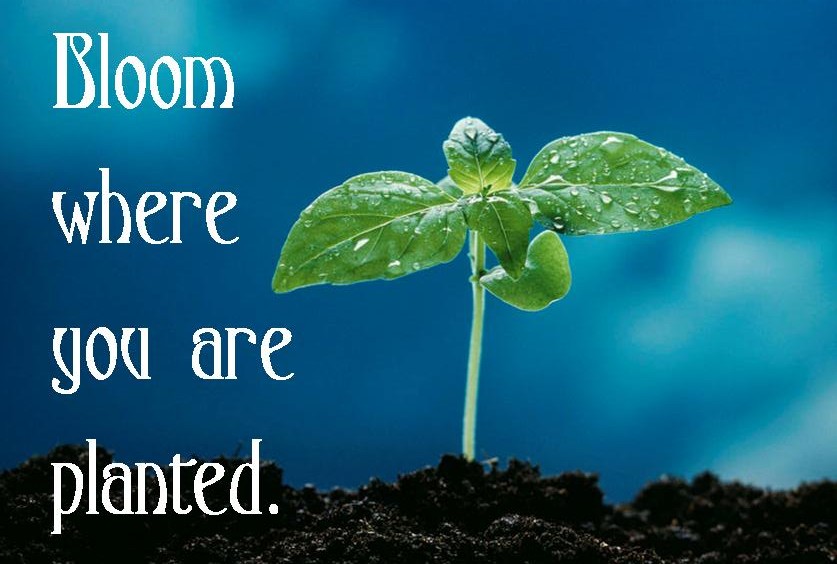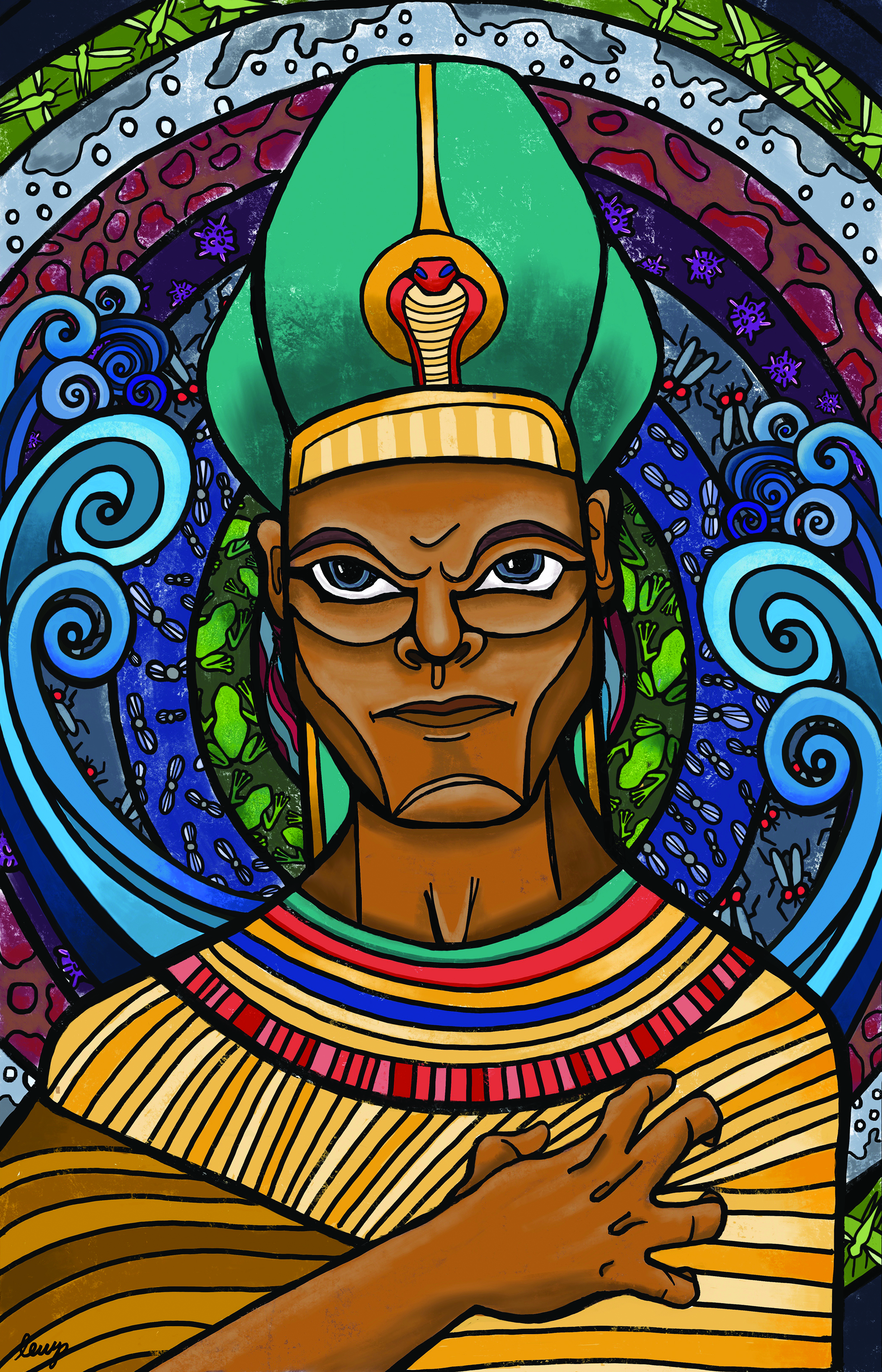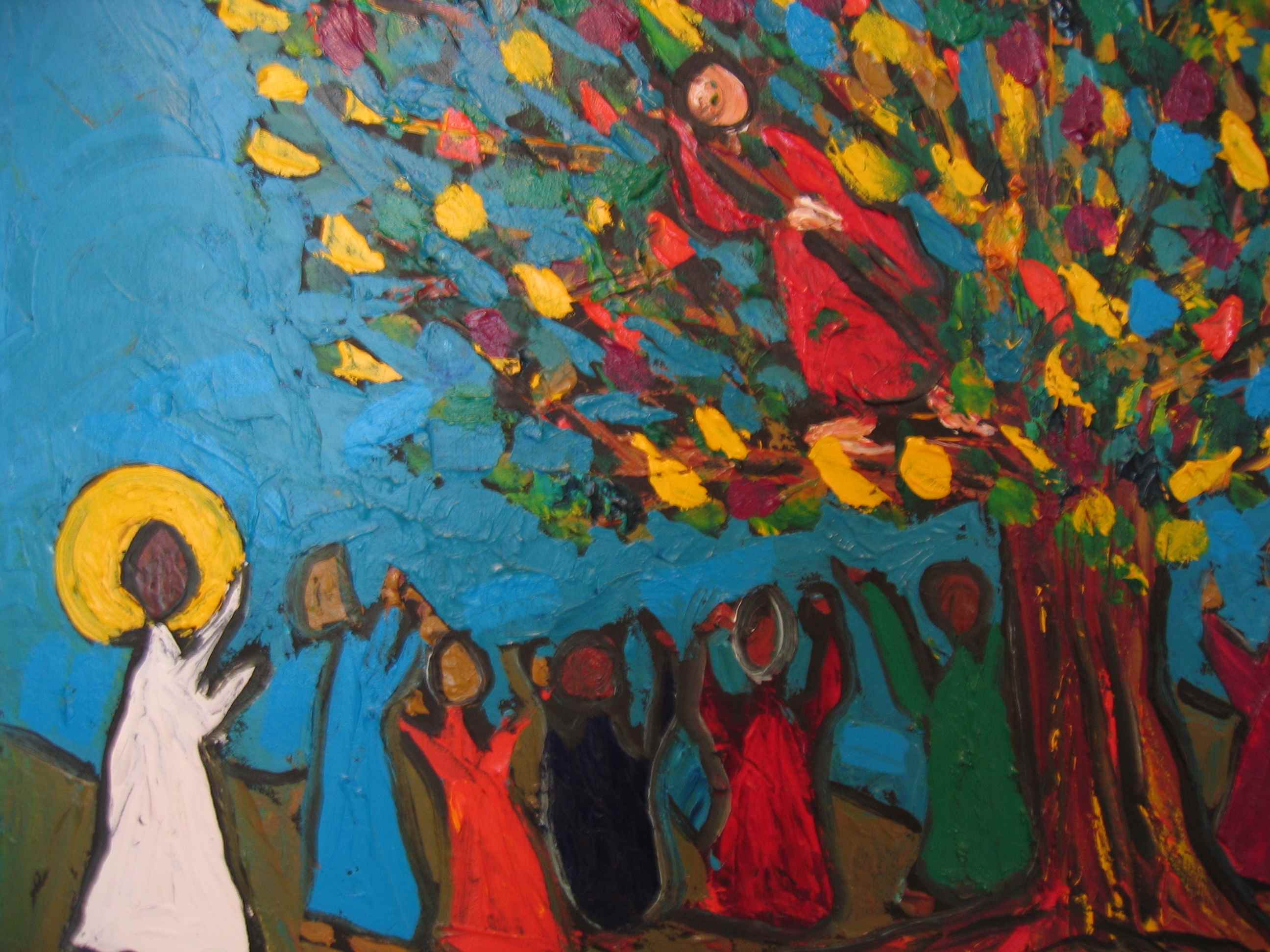
Luke 8:26-39
During WWII, Hitler captured France and kept the citizens from leaving the country. With one exception. A small French town on the border with another country kept losing more and more people. As Nazi soldiers investigated, it seemed that the local cemetery straddled the border. The people there had opened an ancient gate and held frequent ‘funerals,’ after which no one returned. Instead, they left through the gate and entered their freedom.
For this community, freedom was found among the tombs—among the dead. This is where we meet the man possessed by demons in the Gentile community on the other side of the sea. Just the very fact that Jesus crossed the sea to Gentile territory tells us something about where this story is going. It’s going places that should make us uncomfortable. Jesus is, once again, crossing boundaries. And, once again, those boundaries are social and political ones that, if we look too deeply, will get many of us worked up—ready to challenge and argue and defend. It’s a place where transformation happens, if we have the courage to go there.
So, let’s go there together. The first thing to note is that we miss a great deal of nuance with our 21st-century ears. During the time that Mark’s audience is encountering these stories, Roman armies have arrested a number of Christ-followers; they have destroyed the Temple and are destroying the people. After a number of years of quiet unrest, it all has blown up.
So, when the demons name themselves, they call themselves Legion. First century Christians would hear this in a particular way because a legion refers to an army of nearly 6,000 Roman soldiers, sent to occupy a country, dominate a people, and destroy a faith.
When first century Christians heard that the man was possessed with an unclean spirit, they would hear ‘occupied.’ Just as the Romans had occupied Israel, just as the Greeks before them and the Persians before them and the Babylonians before them and so on. And though Legion bowed before Jesus, they also confronted Jesus—a term of battle.
The man had been bound by shackles and chains—like the ones used to imprison the Apostles in Acts. He had been bound by his own people in order to manage and control his condition—to keep them (and perhaps him) safe from the demons that raged within him.
Pastor Linda Anderson-Little says, “Historical records show that in this region of Gerasa, Roman soldiers killed young men, imprisoned their families, and attacked and burned their cities and villages. Many of those buried in the Gerasene tombs, the home of this tormented and demon-possessed man, had been slaughtered by Roman legions.”[1]
There’s no getting around the issue—what the original audience of Mark’s gospel account would hear is an account of political and social annihilation. They would hear their own story in the story of this unnamed Gentile man. This man becomes, even for us, the occupied, the imprisoned, the turned away, the hated and feared. He is the terrifying voice of one that brings the possibility of loss far too close to home. He is the black trans woman who is beaten and left for dead; he is the addicted and the addiction; he is the prisoner released with almost no money, no housing, no transportation, and no job and yet expected to behave in an orderly and respectful manner; he is the hopeless longing for death. He is all the things we fear and all the things we cannot control, breaking his shackles and chains and wandering back into our communities, seeming to drag the dead with him.
He is death, itself. He resides among the tombs, naked and senseless—he is literally ‘in your face’ with shame and horror. He has the audacity to approach Jesus. And Jesus has the nerve to let him—to engage in conversation—to even show mercy to the demons, for what it’s worth. Because Jesus doesn’t shy away from death. He doesn’t shy away from the things we don’t understand and the things we fear and the things we try to hide and the things we try to beat out of people. He doesn’t hide from shame and nakedness. He isn’t afraid to face the horror of all that we hope to ignore, deny, and avoid.
Jesus doesn’t hide from you or me, either—from all of the ways in which we, too, embody Legion and all that its name represents. Jesus doesn’t shy away from our sin and shame, as if we are too far gone to be reached by the hands of love. Instead, he comes to us. Literally comes among us—Emmanuel—God with us. God chooses to reside in the midst of the mess we have created and walk with us through it—getting his hands and feet dirty. God walks with us into sin and death, holding our hands, speaking words of kindness and hope and healing, protecting us from the teeth of the monster, though not shielding us from the mirrors that show us just how monstrous we, ourselves, have become.
So, when you hear this story, whom do you connect with the most? Are you the man, so overwhelmed and bound by demons that you have forgotten who you are? Are you the disciples, standing on the sidelines, watching curiously and, perhaps, with a bit of scorn, as Jesus approaches yet another person he has no business dealing with, let alone healing and commissioning as a disciple? Are you one of the townspeople who, as soon as someone finds a healthier way of being, fight back in fear because you don’t know how to live in this new reality? Because a healthy demoniac leaves you without purpose and meaning once the scapegoat is no longer available? Are you Legion who, when given mercy by the gospel of Jesus the Christ, still self-destruct because you can’t imagine another way?
No matter who you are in the story, Jesus has come for your sake. He has come to heal your wounds, mend your heart, give you identity, and free you from that which imprisons you. He has crossed boundaries so that you no longer need to fear what or who is on the other side of those boundaries—whether a boundary of nation, of politics, of race, of sexual orientation, of religious belief, of addiction, or even of death. But he doesn’t stop there.
Jesus also sends you out to the places from which you came. He sends you back to your beginning so that you, too, can tell everyone what God has done for you. Imagine what that must have been like for this man—returning to his community, to his friends, to his family—to those who feared him and sent him away when they could no longer live with him. Imagine what it must be like for so many who are feared or have been sent away from their own beginnings because of who they are or what they did. Imagine them coming home to the ostracism and shame to try to tell the ones they had loved about how God transformed their hearts.
Imagine the courage it takes for someone to finally accept their identity and ‘come out’ to their family and friends. Imagine the courage it takes for a parent to send their children into an unknown country without being able to comfort them. Imagine the courage it takes to walk into volatile situations every day, hoping and praying you don’t have to draw your weapon. Imagine the courage it takes to get out of bed and face the day when your mind and body race each other for claim on your energy and your sanity. Imagine the courage it takes to make decisions on behalf of a community when, no matter what you decide, you know there will be unimaginable consequences.
But perhaps you don’t have to imagine. This is what it means to be truly human—vulnerable, open, and hope-filled. This is what it means to be a child of God—loved in spite of yourself, accepted even in our shame and nakedness, and sent as witness to a people often unprepared to hear the message of good news—good news for all people, even you.
Pastor Tobi White
Our Saviour’s Lutheran Church
Lincoln, NE
[1] https://soulstorywriter.net/196-regardless-of-politics-death-is-not-a-jesus-approved-immigration-strategy#!/ccomment








